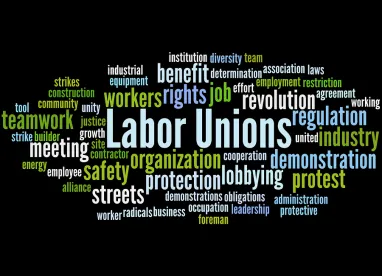As we discussed last week, the National Labor Relations Board (NLRB) has been working hard during the holiday season to reverse landmark decisions issued by the Obama-era Board. The Board’s efforts to reshape federal labor law continued last week with its decision overruling Specialty Healthcare and changing the standard for determining when a proposed bargaining unit is legally appropriate. This is more good news for employers seeking to prevent unions from gaining a foothold in their workplace.
The Specialty Healthcare decision established a precedent that gave unions great control to pick and choose the groups of employees they wanted to represent. Under this rule, a union could choose to organize a small group of employees in the workplace – a “micro-unit.” The employer could ask the Board to expand the micro-unit to include additional employees, but only if employees excluded from the proposed unit shared an “overwhelming community of interest” with the employees in the unit. In practice, this led to unions being able to organize on a very narrow level. For example, units including cosmetics salespeople, but excluding shoe salespeople, were deemed appropriate.
In practice, of course, unions would file petitions in only those areas of a workplace where they had support. This would mean that even if 90 percent of a facility was bitterly opposed to a union, the union could still represent a department with 10 percent of the employees if it could establish majority support among that 10 percent.
Under the Specialty Healthcare standard, employers facing organizing efforts were effectively prevented from arguing that other employees should be included in the same unit as the 10 percent the union sought to represent. And the great fear for employers was that once the union got that foothold in the workplace, it would have a base of operations from which it could attempt to persuade other employees to join over months or years.
But, no more. The NLRB has now concluded that Specialty Healthcare was wrongly decided and should be overruled. In its place, the Board is returning to its “traditional community of interest” standard. Under this standard, the union’s proposed bargaining unit is a factor that must be considered when determining an appropriate unit, but it is merely one factor among many. This more holistic test requires the Board to examine all of the interests of the employees, both inside and outside the proposed unit, and only then determine whether the union’s proposed unit is an appropriate one.
In effect, this gives employers another argument when faced with an organizing campaign by a union. Under the new (old) standard, if a union is able to convince a small portion of the workforce of the alleged benefits of forming a union, the employer may be able to argue that the smallest appropriate bargaining unit should include additional employees – including those who may not be as interested in the union.



 />i
/>i

